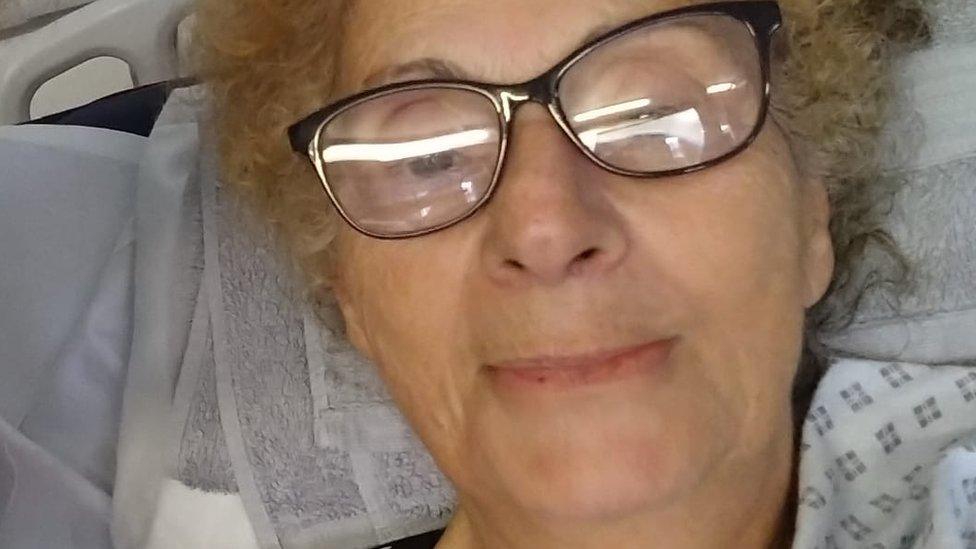Wolverhampton hospital workers overwhelmed by patient numbers
- Published
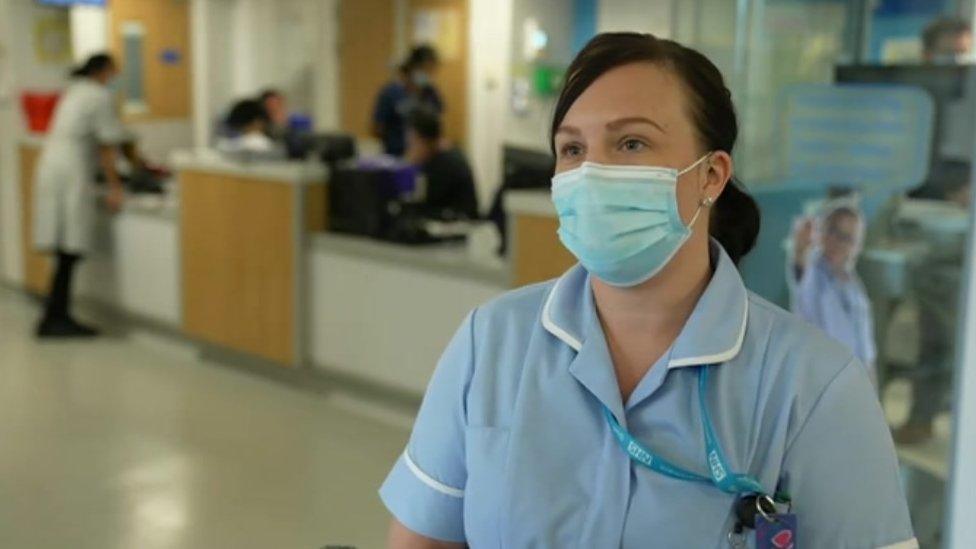
A&E nurse Stacey McBride loves the job, despite the pressures
Staff at a Wolverhampton hospital described the unrelenting pressures of working in A&E as waiting times hit their worst UK levels on record.
New Cross Hospital nurse Stacey McBride said patient numbers were overwhelming.
"You're talking two hundreds in a day... that's not counting the ambulances that are outside," she said.
Last month, the Royal Wolverhampton Hospital Trust treated 74.1% of A&E patients inside four hours, compared with 79.7% in October.
"It does cross my mind quite a lot, about leaving," added Ms McBride. "I have recently returned off maternity leave and obviously I've been thinking about going. But I do love A&E, it's my passion."
Nationally, the government's target of 95% of patients being seen inside four hours has not been met since 2015, while November's England average stood at 68.9%.
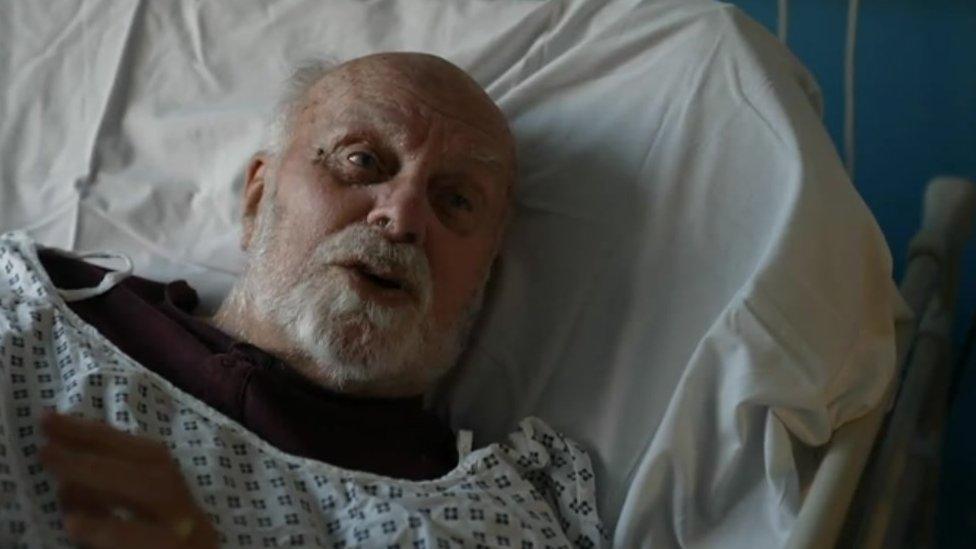
Patient Max Reynolds had to wait six hours for an ambulance
Max Reynolds, 91, spent six hours waiting for an ambulance, then 22 hours waiting for a bed before spending the night in the hospital's new £3m ambulance receiving centre.
"I was paralysed, if you like," said Mr Reynolds. "I couldn't get up and I couldn't crawl. So that was an agonising time, that was the worst of my life."
The receiving centre provides 17 extra bays to create a holding area for patients who cannot get into the emergency department.
Despite her father's experience, Mr Reynolds' daughter Jane Sellar said she remained a staunch believer in the NHS.
"I've really seen the pressure that clinicians are under and they're still doing all the things that should be done, and I really wish that everyone could acknowledge that," she added.
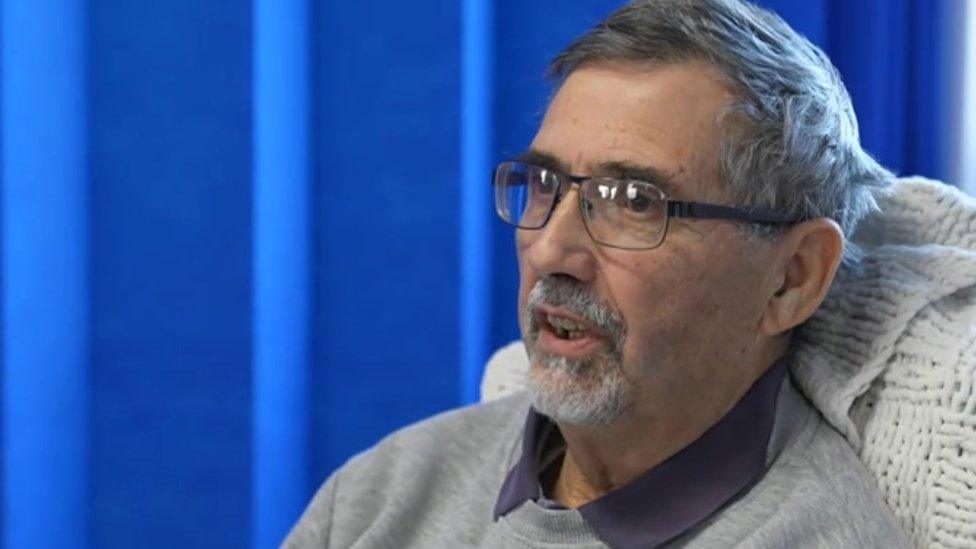
Robert Cartwright fears he could have died had his family not brought him to hospital
Robert Cartwright waited an hour for an ambulance after collapsing in a car park. When told it could be up to two hours longer, his family brought him to hospital in the back of a van.
"As far as anybody knew I'd had a heart attack, so... if I'd have been left to lie there that long, I'd be dead," he said.
Dr Brian McKaig, Chief Medical Officer at the Royal Wolverhampton NHS Trust, said on Thursday all departments at the hospital were full, with about 10 patients waiting for beds.
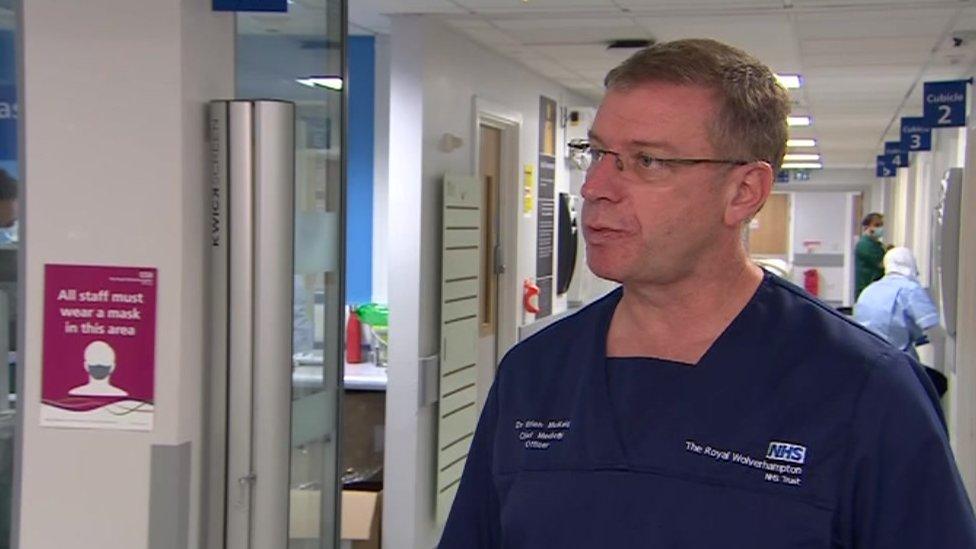
Dr Brian McKaig says the receiving centre got ambulances back on the road more quickly
"One of our main difficulties is that we have over 100 patients who are medically fit for discharge, so that's four wards worth of patients that we could be using to treat patients with acute illnesses," he said.
A lack of staff in social care meant those patients could not be discharged, Dr McKaig said, as they could not be placed in nursing and care homes.
"It is meaningfully important for patients' wellbeing not to stay in hospital for any longer than they need to be in hospital," he added.

Follow BBC West Midlands on Facebook, external, Twitter, external and Instagram, external. Send your story ideas to: newsonline.westmidlands@bbc.co.uk, external
Related topics
- Published8 December 2022
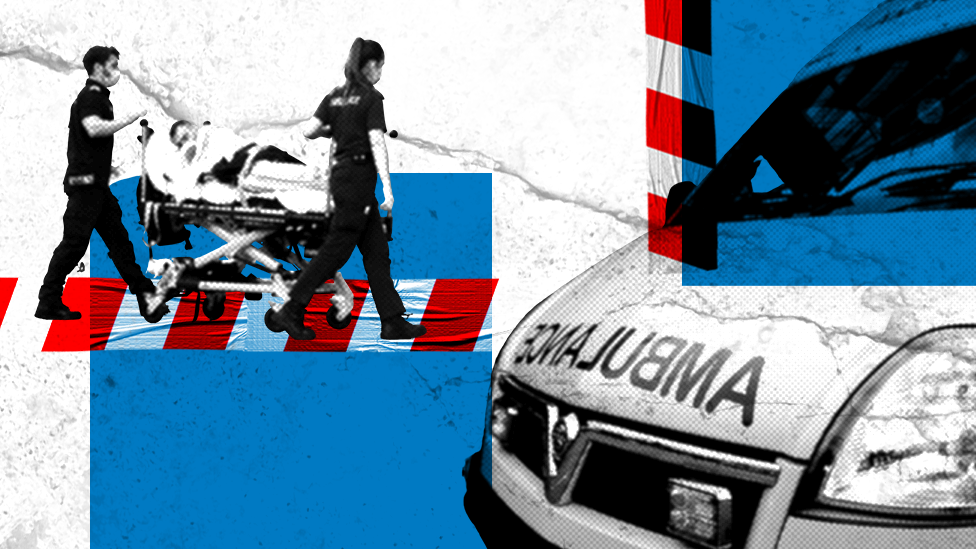
- Published8 December 2022
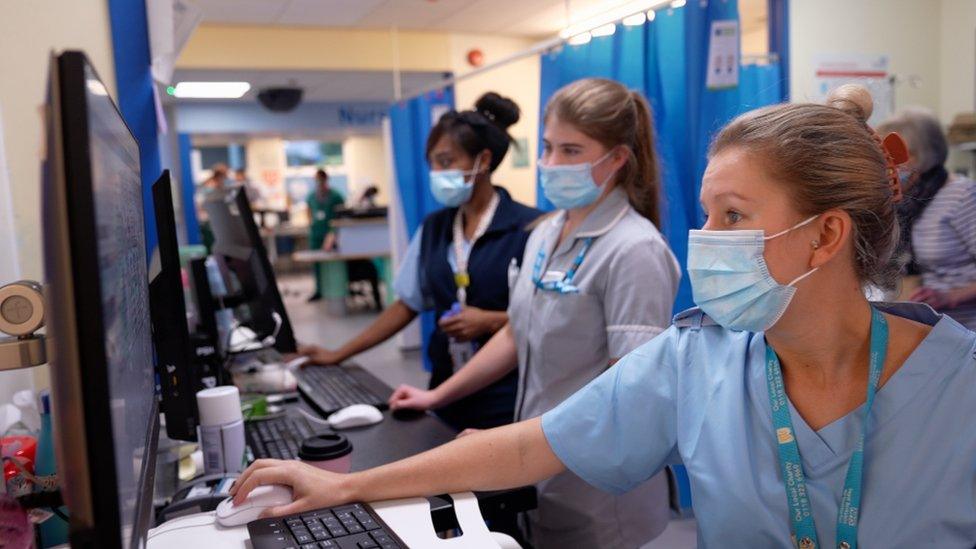
- Published8 December 2022
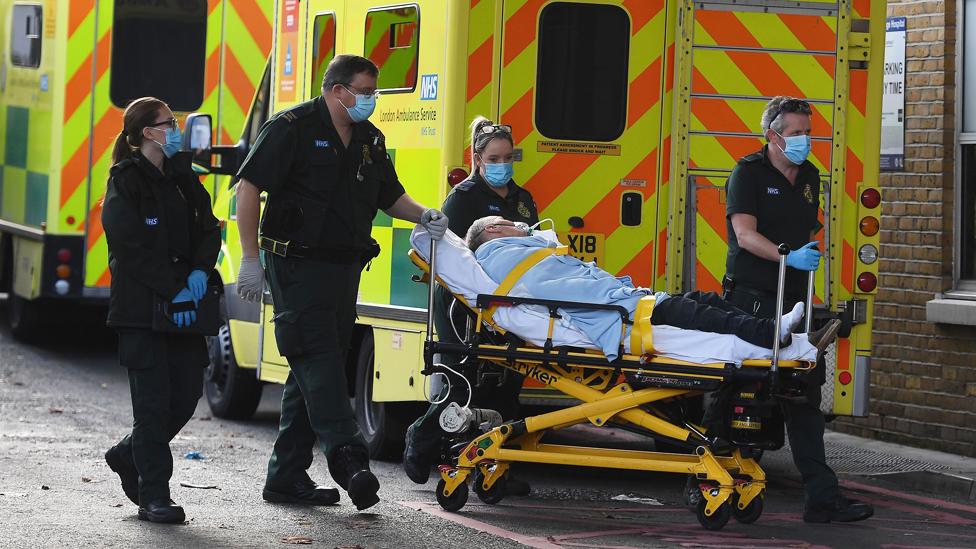
- Published1 December 2022
